15 More Senior Tax Officials, Accused Of Corruption, Made To Retire
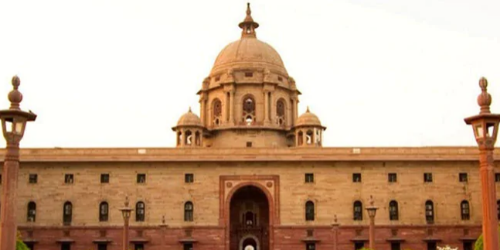
The Government of India compulsorily retired 15 Commissioner-level officials of the Central Board of Indirect Taxes and Customs. According to finance ministry sources, the ousted officials were charged with corruption, collecting and giving bribes, smuggling and even criminal conspiracy.
Of late, the Modi government has intensified its efforts to clean-up the bureaucracy. Last week, the government had compulsorily retired 12 senior IRS officials from the Income Tax department over charges of corruption, sexual harassment, disproportionate assets under Rule 56(j) of Central Civil Services (Pension) Rules.
In the latest crackdown, the government compulsorily retired CBIC Principal Commissioner Anup Srivastava (1984-batch IRS), as well as commissioners Atul Dikshit (1988-batch IRS), Sansar Chand (1986-batch IRS), G Shree Harsha (1991-batch IRS), and Vinay Brij (1995-batch IRS).
Other officials who faced the music included CBIC additional commissioners Ashok R Mahida (1990-batch IRS) and Virendra Kumar Agarwal (1990-batch IRS), along with Deputy Commissioner Amresh Jain (1992-batch IRS), Joint Commissioner Nalin Kumar (2005-batch IRS), assistant commissioners SS Pabana (2014-batch IRS), SS Bisht (2014-batch IRS) and Vinod Kumar Sanga (2014-batch IRS).
Additional Commissioner Raju Sekar (1992-batch IRS), Deputy Commissioner Ashok Kumar Aswal (2003-batch IRS) and Assistant Commissioner Mohammad Altaf (2009-batch IRS) have also been compulsorily retired.
The Rule 56(j) of Central Civil Services (Pension) Rules, 1972 provides for periodical review of performance of government servants with a view to ascertain whether they should be retained in service or retired from service in public interest.
As per these instructions, the cases of government servants covered by FR 56(j), 56(1) or Rule 48(1) (b) of CCS (Pension) Rules, 1972 should be reviewed six months before they attain the age of 50-55 years, in cases covered by FR 56(j) and on completion of 30 years of qualifying service under FR 56(1) or Rule 48 of CCS (Pension) Rules, 1972.
- 0
- Leave a comment
UK High Court denies bail to Nirav Modi fearing obstruction of justice
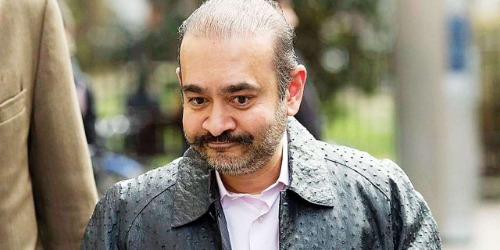
The UK High Court has denied bail to fugitive diamantaire Nirav Modi on Wednesday. This is the fourth bail plea by Modi that has been refused by UK courts. Modi remains in custody at Wandsworth prison in south-west London and is due to appear for his next remand hearing via videolink on June 27.
Judge Ingrid Simler at the Royal Court of Justice in London delivered this judgement on grounds that there are substantial reasons to believe that Modi will fail to surrender if granted bail. She also ruled that after considering all the material "carefully", she had found strong evidence to suggest there had been interference with witnesses and destruction of evidence in the case and concluded it can still occur.
"It is difficult, in my judgement, to see how the UK is safe haven as there is no case of him being tried here. There are still places in world one can escape to which are an even safer haven from Indian investigating authorities," she said, countering Modi's lawyers' assertion that he did not have any incentive to flee the UK as he sees it as a safe haven of justice.
Listening to his bail plea on Tuesday, Justice Simler had ruled that the matter was of "some importance" and she would take some time to consider it. She had reserved her judgement for Wednesday.
The judge concluded that it is "difficult to predict" how Modi would react to developments in the extradition process, raising a strong incentive of failure to surrender before the courts to avoid returning to India. She also accepted the Westminster Magistrates' Court concerns that the diamond merchant had been based in the UK for only a short period of time and had no significant ties to the country.
On Tuesday, Modi's legal team tried to persuade Judge Simler to overturn the Westminster Magistrates' Court decision to deny him bail in three previous attempts. The lower court had similar misgivings as the UK High Court regarding Modi's intentions to surrender if he is allowed to go free.
During the hearing on Tuesday, Modi's legal team reiterated many of its assertions from previous three bail pleas before Westminster Magistrates' Court to claim that the diamond merchant did not pose a "substantial" flight risk, as claimed by the Indian government. His barrister Clare Montgomery once again offered to put Modi under house arrest and electronic monitoring at his lavish Centrepoint apartment in central London.
"The reality is that he is not the cold-blooded hardened criminal as claimed by the government of India but a jewellery designer from a long line of diamond dealers, and regarded as being honest, careful and reliable," Montgomery said.
However, the Crown Prosecution Service (CPS), arguing the case for the Indian government, argued that Modi had enough reasons and resources to flee to a country which does not have an extradition treaty with India.
The government of India has strong, friendly bilateral relations with the UK, including an extradition treaty, and this case involves widespread allegations which have been submitted in good faith by Indian authorities, said CPS barrister Nicholas Hearn, who argued that the threat of Modi interfering with witnesses and destruction of evidence continued to loom as part of the ongoing investigations.
He also reiterated that while Modi's legal team has attempted to characterise the case as a commercial matter, the Indian investigations carried out at high levels by two agencies the CBI and ED prove that it is a serious criminal case.
Modi has been in judicial custody since his arrest in March earlier this year. This three bail pleas were turned down by the Westminster Magistrates' Court. He had the automatic right to file an application in the higher court and did not require permission to appeal.
The first case management hearing in the extradition case took place at Westminster Magistrates' Court on May 30. Back then, Judge Emma Arbuthnot had directed the Indian government to confirm which prison Modi is to be held in if he were to be extradited to India, setting a 14-day deadline for a confirmation of the prison plans in India.
The CPS, representing the Indian government, has until July 11 to present an opening position statement laying out the prima facie case against Modi, with the next case management hearing set for July 29 when a timeline for extradition trial is expected to be laid out.
Vijay Mallya was heckled At India-Australia World Cup Match
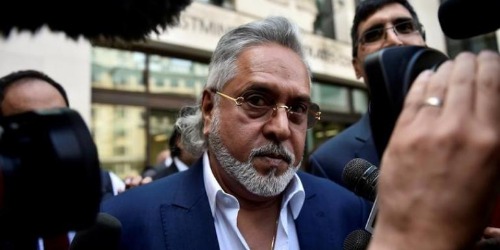
Businessman Vijay Mallya was subjected to cries of "chor hai (you are a thief)" as he left The Oval stadium in London yesterday, where he was watching a cricket World Cup match between India and Australia. The former Kingfisher Airlines boss is facing extradition to India where he is wanted on charges of fraud and money laundering amounting to Rs. 9,000 crore.
"I am making sure my mother doesn't get hurt," Mr Mallya quoted when asked to respond to the cries.
"I am here to watch the game," he said and also says that "preparations are underway for the next hearing scheduled in July".
Mr Mallya also posted a photo of himself and his son, Siddharth Mallya, from inside the stadium with the caption: "Great to watch cricket with my son and even sweeter to see India's emphatic victory over Australia. Congratulations to @imVkohli? and his team".
This is not the first time Mr Mallya has been heckled at a cricket match.
In January 2017 he faced similar cries - those of "chor, chor (thief, thief)" - when he came to the same stadium to watch a Champions Trophy cricket match between India and South Africa.
Mr Mallya's extradition was ordered by the Westminster Magistrates' Court in December last year, after which the UK Home Secretary signed the order. The businessman then filed an application for permission to appeal the order, which was refused.
A "renewal application" was filed in April. The renewal involves a short oral hearing before a High Court judge, now scheduled for July 2, where his lawyers will further plead his case against being extradited to India.
Vijay Mallya, who left India on March 2, 2016, has repeatedly denied fleeing the country and said he is ready to pay back the money he owes to the Indian banks.
A consortium of 13 banks, led by the State Bank of India (SBI), has initiated loan recovery proceedings against him. The proceedings are on before a special court in Mumbai under the Fugitive Economic Offenders Act.
The Enforcement Directorate (ED) had also moved the Special Prevention of Money-Laundering Act Court last year to get Vijay Mallya declared a "fugitive economic offender" and confiscate his properties, estimated at more than Rs. 12,000 crore, making it the first such case of its kind under the new law.
RBI Cuts Rate To Lowest In 9 Years To Boost Growth, Loans May Get Cheaper
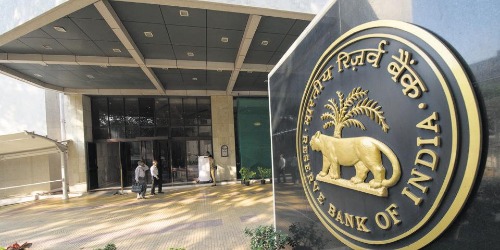
The Reserve Bank of India's Monetary Policy Committee (MPC), led by Governor Shaktikanta Das, on Thursday unanimously lowered key lending rate or repo rate by 25 basis points or 0.25 per cent to 5.75 per cent. The six-member committee also changed the policy stance to "accommodative" from "neutral". Repo rate is the interest rate at which commercial banks borrow short-term funds from the RBI. The rate cut comes after official data last month showed the country's GDP or gross domestic product grew 5.8 per cent in the quarter ended March 31. That meant India lost its status as the fastest growing major economy to China, which clocked a growth of 6.4 per cent in the three-month period.
Here are 10 things to know:
1. With today's cut, the RBI lowered the key interest for third time in a row to a level last seen in September 2010.
2. The RBI's move to lower the repo rate met economists' estimates. Two-thirds of 66 economists in a poll conducted by news agency Reuters ahead of the release of GDP data had expected the Monetary Policy Committee to announce a 25-basis-points cut in the repo rate to 5.75 per cent.
3. The reduction comes as a relief to borrowers as equated monthly instalments (EMI) for home loans, car loans and other loans are set to come down.
4. However, depositors would earn less on their bank investments.
5. Many economists had expected the central bank to switch to an "accomodative" stance.
6. “Liquidity in the banking system has seen a movement from deficit to positive zone. It is important to see this situation continues to ensure credit transmission,” said Lakshmi Iyer, chief investment officer (debt) and head products, Kotak Mahindra Asset Management Company.
7. In a press conference after the release of the policy statement, Mr Das said that the central bank would ensure a "faster and higher" transmission by commercial banks to pass on the benefit of lower interest rates to their customers.
8. "The change in stance was a bit of a surprise. Debt markets will take this as a significant positive move though most of the rate cut cycle is probably over. The tone of the RBI policy was dovish and highlights the concerns on growth," said Suvodeep Rakshit, senior economist at Kotak Institutional Equities.
9. The Reserve Bank of India lowered its GDP growth target for financial year 2019-20 to 7 per cent, from 7.2 per cent in April.
10. The consumer inflation for the first half of financial year 2019-20 has been pegged in the range of 3-3.1 per cent with "risks evenly balanced", the RBI noted in its bi-monthly policy statement.
GDP growth hits 5-year low, unemployment rises: New FM Nirmala Sitharaman faces tough revival challenge
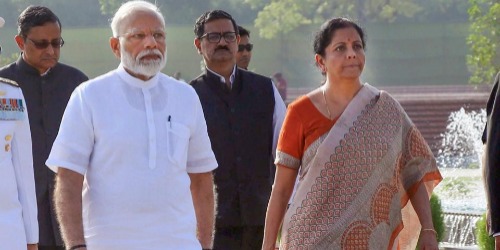
Nirmala Sitharaman on Friday was elevated to the post of Union Finance Minister under Narendra Modi's NDA 2.0 cabinet. She will also head the Corporate Affairs ministry in the new cabinet apart from her primary role as the finance minister.
Sitharaman, who became the first woman in 48 years to hold the top post after Indira Gandhi, faces a multitude of economic challenges as she takes the top post at North Block.
Improving growth
On Thursday, GDP growth data released for the last quarter of 2018-19 came in at 5.8 per cent, the lowest in at least 20 quarters. With the sharp slowdown in growth, India has lost its fastest growing economy tag to China after two years.
Meanwhile, India's overall GDP growth has touched a five year low as well at 6.8 per cent. This is in stark contrast from the 8 percent growth rate recorded a year ago.
Since the last financial year, GDP growth has sequentially dipped from over 8 percent to 7 percent in the second quarter while further coming down to 6.6 percent in the third quarter.
However, economists have raised several structural concerns after growth fell below 5.8 percent for the last quarter of 2018-19.
A slowdown in GDP growth in the last quarter has been attributed by economists to slow rural consumption demand, lapses in the manufacturing sector, agricultural distress, and unemployment. Key sectors including FMCG and automobile have also fallen sharply due to lowering rural demand.
While these are some of the top challenges for the new finance minister, she will also have to maintain a balance between growth and fiscal consolidation, as recommended by most economists.
Sitharaman will also have her work cut out in planning new sectoral reforms to iron out issues that have led to a slowdown in growth in a number of sectors.
The former defence minister will also have to look closely at the shadow-banking sector which has been under pressure since the defaults at IL&FS, which triggered a liquidity crisis in the economy.
Noted economists including Raghuram Rajan have said India has the potential to breach 10 percent GDP growth but added that it has to be supported by chiseled reforms.
Unemployment at 45-year-high
However, of all the challenges she faces, fixing the job crisis is likely to be on top of the agenda.
Unemployment in the country is at a 45-year high at 6.1 percent, according to latest figures released by the Ministry of Statistics and Program Implementation (MoSPI).
Earlier, an unreleased periodic labour force survey by the NSSO had shown a spike in unemployment in the country but was rejected by the government, which termed it as a draft report.
This is yet another concern for Nirmala Sitharaman and what makes her job tougher is the fact that the country offers limited fiscal room to boost growth through higher government expenditure.
Sitharaman will have to carefully work with the Reserve Bank of India (RBI) to tackle the dual-ended issue of balancing growth.
Among other challenges, Sitharaman will also have her hands full in solving the distress faced by farmers in the country. Farmers in the country have once again started protesting against weaker prices and burgeoning debt.
The average agricultural growth under NDA's first term has not been low at just 2.5 per cent. This is another area where Sitharaman needs to focus in order to prevent a further slump in the economy.
But the trickiest challenge for the new finance minister will be to balance growth and expenditure perfectly to ensure the speedy economic revival and fiscal consolidation.


